The Selfish Gene
40th Anniversary Edition
2016 (First published: 1976)
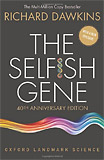
In the Selfish Gene ethologist Richard Dawkins builds upon the principal theory of George C Williams's Adaptation and Natural Selection (1966). Dawkins uses the term "selfish gene" as a way of expressing the gene-centred view of evolution (as opposed to the views focused on the organism and the group). From this view, it follows that the more two individuals are genetically related, the more sense (at the level of the genes) it makes for them to behave cooperatively with each other.More ...
544 Pages
5/5
188
"Surely You're Joking, Mr. Feynman!"
Adventures of a Curious Character
2018 (First published: 1985)
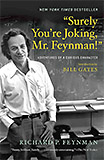
Richard P. Feynman, winner of the Nobel Prize in physics, thrived on outrageous adventures. In this lively work that “can shatter the stereotype of the stuffy scientist” (Detroit Free Press), Feynman recounts his experiences trading ideas on atomic physics with Einstein and cracking the uncrackable safes guarding the most deeply held nuclear secrets. In his stories, Feynman’s life shines through in all its eccentric glory - a combustible mixture of high intelligence, unlimited curiosity, and raging chutzpah.
400 Pages
5/5
187
Breaking the Age Code
How Your Beliefs About Aging Determine How Long and Well You Live
2022 (First published: 2022)
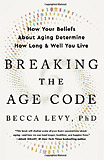
Yale professor and leading expert on the psychology of successful aging, Dr. Becca Levy, draws on her ground-breaking research to show how age beliefs can be improved so they benefit all aspects of the aging process, including the way genes operate and the extension of life expectancy by 7.5 years. She demonstrates that many health problems formerly considered to be entirely due to the aging process, such as memory loss, hearing decline, and cardiovascular events, are instead influenced by the negative age beliefs. More ...
304 Pages
4/5
174
Dopamine Nation
Finding Balance in the Age of Indulgence
2021
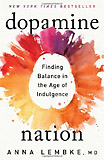
Dr. Anna Lembke, psychiatrist and author, explores the exciting new scientific discoveries that explain why the relentless pursuit of pleasure leads to pain - and what to do about it. Condensing complex neuroscience into easy-to-understand metaphors, Lembke illustrates how finding contentment and connectedness means keeping dopamine in check. Their riveting stories of suffering and redemption give us all hope for managing our consumption and transforming our lives. More ...
304 Pages
4/5
178
The Nature Fix
Why Nature Makes Us Happier, Healthier, and More Creative
2018 (First published: 2017)
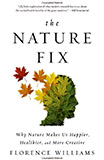
Exploring the positive effects of nature on the brain through research and personal anecdotes, the author shows how time spent in nature can improve our health, happiness, and creativity. This engaging book delves into the science behind the nature fix and provides inspiration to reconnect with the great outdoors. A must-read for anyone seeking to understand the power of nature in our lives, "The Nature Fix" will leave you with a deeper appreciation for the natural world and a desire to spend more time in it.
304 Pages
4/5
160
Bad Science
Quacks, Hacks, and Big Pharma Flacks
2010 (First published: 2010)
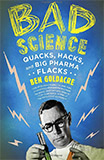
"Bad Science" is a thrilling read that exposes the dark side of scientific research. Through entertaining storytelling, the book delves into the issues of misinformation and flawed scientific studies. Goldacre provides a sobering look at the often-shoddy state of research, while also equipping readers with a deeper appreciation for the scientific process. Whether you're a science buff or simply looking to be a more informed consumer of information, "Bad Science" is a must-read that will leave a lasting impact. Get ready to laugh, learn, and be inspired to make a difference.
304 Pages
4/5
155
The Song of the Cell
An Exploration of Medicine and the New Human
2022
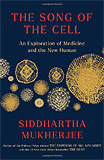
From the Politzer Prize winner comes an exploration of medicine and our radical new ability to manipulate cells. Rich with Mukherjee’s revelatory and exhilarating stories of scientists, doctors, and the patients whose lives may be saved by their work. The discovery of cells - and the reframing of the human body as a cellular ecosystem - announced the birth of a new kind of medicine based on the therapeutic manipulations of cells. More ...
496 Pages
4/5
178
I Contain Multitudes
The Microbes Within Us and a Grander View of Life
2018 (First published: 2016)
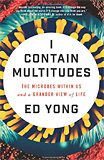
Every animal, whether human, squid, or wasp, is home to millions of bacteria and other microbes. Pulitzer Prize-winning author Ed Yong, whose humor is as evident as his erudition, prompts us to look at ourselves and our animal companions in a new light—less as individuals and more as the interconnected, interdependent multitudes we assuredly are. The microbes in our bodies are part of our immune systems and protect us from disease. More ...
368 Pages
4/5
193
The Diversity of Life
New Preface: Questions of Science
2010 (First published: 1992)

Watching from the edge of the Brazilian rain forest, witness to the sort of violence nature visits upon its creatures, Edward O. Wilson reflects on the crucible of evolution, and so begins his remarkable account of how the living world became diverse and how humans are destroying that diversity. Wilson takes us on a tour through time, traces the processes that create new species in bursts of adaptive radiation, and points out the cataclysmic events that have disrupted evolution and diminished global diversity over the past 600 million years.
440 Pages
5/5
165
The Theoretical Minimum
What you need to know to start doing physics
2014 (First published: 2013)
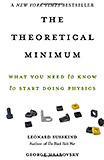
If you ever regretted not taking physics in college -- or simply want to know how to think like a physicist -- this is the book for you. In this bestselling introduction to classical mechanics, physicist Leonard Susskind and hacker-scientist George Hrabovsky offer a first course in physics and associated math for the ardent amateur. Challenging, lucid, and concise, The Theoretical Minimum provides a tool kit for amateur scientists to learn physics at their own pace. More ...
256 Pages
4/5
169
The Body
A Guide for Occupants
2021 (First published: 2019)
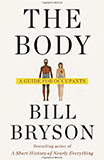
"The Body: A Guide for Occupants" is a highly recommended read for anyone interested in learning about the fascinating intricacies of the human body. Bryson's signature wit and humor, combined with a wealth of scientific knowledge, make this book an enjoyable and enlightening journey through the complex inner workings of our bodies. Whether you're a medical professional or simply curious about how our bodies function, this book offers a comprehensive and accessible look at human anatomy and physiology.
464 Pages
5/5
164
The Illustrated Brief History of Time
Updated and Expanded Edition
1996 (First published: 1988)
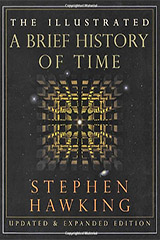
In the years since its publication in 1988, Stephen Hawking's A Brief History Of Time has established itself as a landmark volume in scientific writing. It has become an international publishing phenomenon, translated into forty languages and selling over nine million copies. The book was on the cutting edge of what was then known about the nature of the universe, but since that time there have been extraordinary advances in the technology of macrocosmic worlds. These observations have confirmed many of Professor Hawkin's theoretical predictions in the first edition of his book.
248 Pages
5/5
153
Why We Sleep
The New Science of Sleep and Dreams
2018 (First published: 2017)

"Why We Sleep" explores the crucial role of sleep for our health, longevity and well-being. In this book, the author uses 20 years of research to explain why sleep is linked to major diseases and how it affects our lives. The book covers topics from REM sleep, caffeine & alcohol's impact, and sleep patterns over a lifetime, offering a comprehensive look at the extraordinary phenomenon of sleep. Get ready to discover the mysteries of sleep and why it matters for your overall well-being.
368 Pages
4/5
194
The Future of Humanity
Our Destiny in the Universe
2019 (First published: 2018)
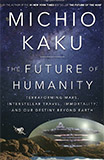
Entering a new Golden Age of space exploration, Dr. Michio Kaku presents a vision for sustainable space civilization using cutting-edge tech like robotics, nanotechnology, and biotechnology. He explores possibilities for terraforming and inhabiting cities on Mars and beyond, and the potential for interstellar travel using technologies like nanoships, laser sails, and fusion rockets. Kaku delves into topics like warp drive, wormholes, hyperspace, parallel universes, and the multiverse, and ultimately, shows how humans may achieve immortality through laser porting to new space havens.
368 Pages
4/5
159
Gene Machine
The Race to Decipher the Secrets of the Ribosome
2019 (First published: 2018)
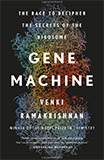
Unlock the secrets of life with "Gene Machine: The Race to Decipher the Secrets of the Ribosome" by Venki Ramakrishnan. Join the author on a thrilling journey through the discovery of the ribosome, the molecular machine responsible for translating DNA into the building blocks of life. With captivating storytelling this book brings the cutting-edge of science to your fingertips. Explore the exciting race to uncover the mysteries of the ribosome and how it holds the key to life as we know it. Get ready to be inspired by the wonders of biology in "Gene Machine."
288 Pages
5/5
163
The Soul of an Octopus
A Surprising Exploration into the Wonder of Consciousness
2016 (First published: 2015)
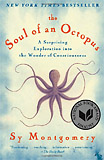
From New England aquarium tanks to the reefs of French Polynesia and the Gulf of Mexico, Sy Montgomery has befriended octopuses with strikingly different personalities—gentle Athena, assertive Octavia, curious Kali, and joyful Karma. Each creature shows her cleverness in myriad ways: escaping enclosures like an orangutan; jetting water to bounce balls; and endlessly tricking companions with multiple “sleights of hand” to get food. More ...
272 Pages
4/5
200
Basic Physics. 3rd Edition
A Self-Teaching Guide
2020 (First published: 1996)
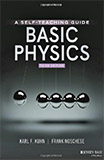
This is the most practical and reader-friendly guide to understanding all basic physics concepts and terms. The expert authors take a flexible and interactive approach to physics based on new research-based methods about how people most effectively comprehend new material. The book takes complex concepts and breaks them down into practical, easy to digest terms. This Self-Teaching Guide helps you master the principles that govern not only our physical world, but all of space and time. More ...
352 Pages
4/5
177